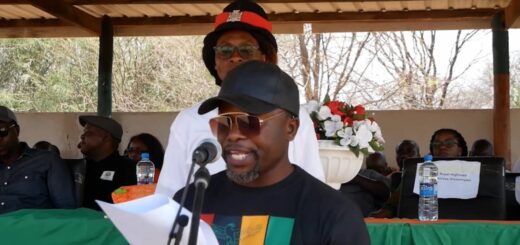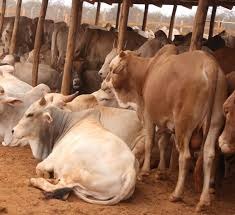CSPR Calls For Increased Budgetary Allocation Towards Agricultural Extension Services
Civil Society for Poverty Reduction (CSPR) has called for increased budgetary allocation towards agricultural extension services.
In his lobby brief presented at the just ended CSPR advocacy meeting in Lusaka, Organization Acting Executive Director, Brian Moyowanyambe noted that only 1.7% of the agricultural budget is allocated to crop production advisory services while the majority is directed toward fertiliser and maize seed.
Mr. Moyowanyambe stated that extension services play a critical role in advancing Zambia’s agriculture by bridging research and farming practices, especially in rural areas.
He explained that extension services equip farmers with skills for sustainable, adaptive practices, supporting Zambia’s National Crop Diversification Strategy and enhancing resilience to climate change.
“The main objective of this brief is to advocate for policy adjustments that prioritize agricultural extension services and shape the Plant Breeders’ Rights (PBR) Bill to support a diverse, climate-resilient food system.”
“We anticipate that there might be some counterarguments. For example, it could be argued that prioritizing inputs like fertilizer and maize seeds has a more immediate impact on food security compared to extension services, which may take longer to show measurable results. However, extension services equip farmers with the skills and knowledge to diversify crops and adopt sustainable practices, which are essential for building resilience against climate shocks, something that simply providing seed and fertilizer does not address,” Mr. Moyowanyambe asserted.
He also stressed the need to invest in training and technology for extension officers, and promote partnerships with research institutions to improve knowledge sharing with farmers.
Meanwhile, Mr. Moyowanyambe recommended that the Plant Breeders Rights (PBR) Bill should be amended in a bid to protect farmers’ rights to save and exchange traditional seeds and support local breeding programs that develop climate-resilient, locally adapted crops.
“Moreover, The PBR Bill, intended to protect breeders’ rights, should also ensure farmers’ access to locally adapted seeds, vital for resilience in changing climates. Access to diverse seed options helps farmers adapt to unpredictable weather and maintain food security.”
“Further, a balanced PBR Bill can protect breeders’ rights while preserving traditional seeds, aligning with Zambia’s National Agriculture Policy and international agreements,” he said.
Amendments to the Plant Breeders’ Rights (PBR) Act (2007) is aimed at aligning it with the International Union for the Protection of New Varieties of Plants (UPOV)1991 standards in order for Zambia to become a member.
The PBR Act is concerned with providing plant breeders with exclusive rights to varieties they develop, whilst limiting others’ use rights to these varieties.
And Parliamentary Committee on Climate Change and Environment Co-Chairperson Anthony Kasandwe encouraged farmers to know and understand the type of soil where they want to put their seed in the face of climate change.
Mr. Kasandwe, who is also Bangweulu Member of Parliament, commended CSPR and HIVOS for organizing the advocacy meeting which brought together farmers, Members of Parliament and other stakeholders to discuss the impact of Diverse and Climate-Resilient Food Systems in Zambia.








